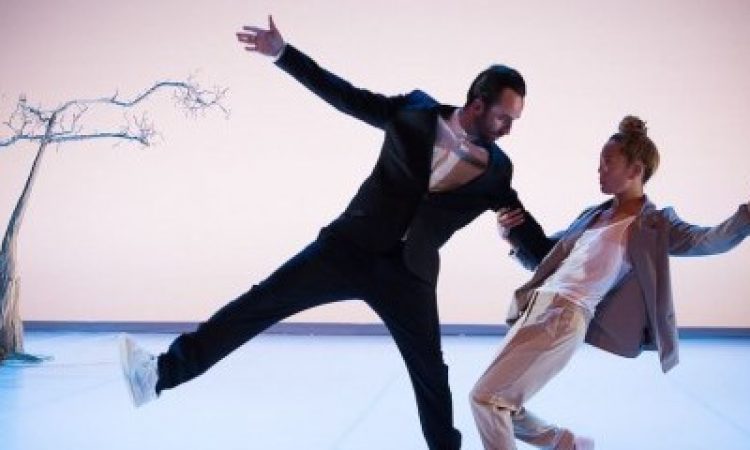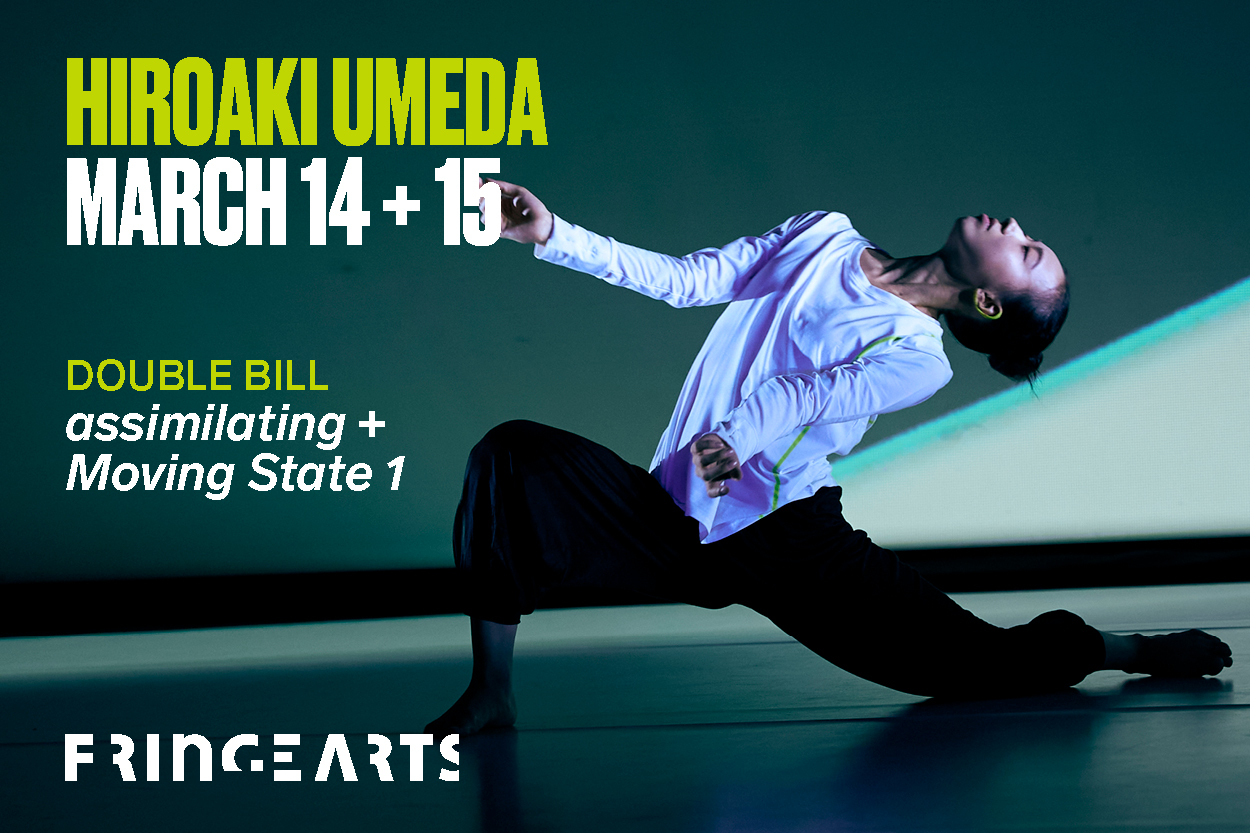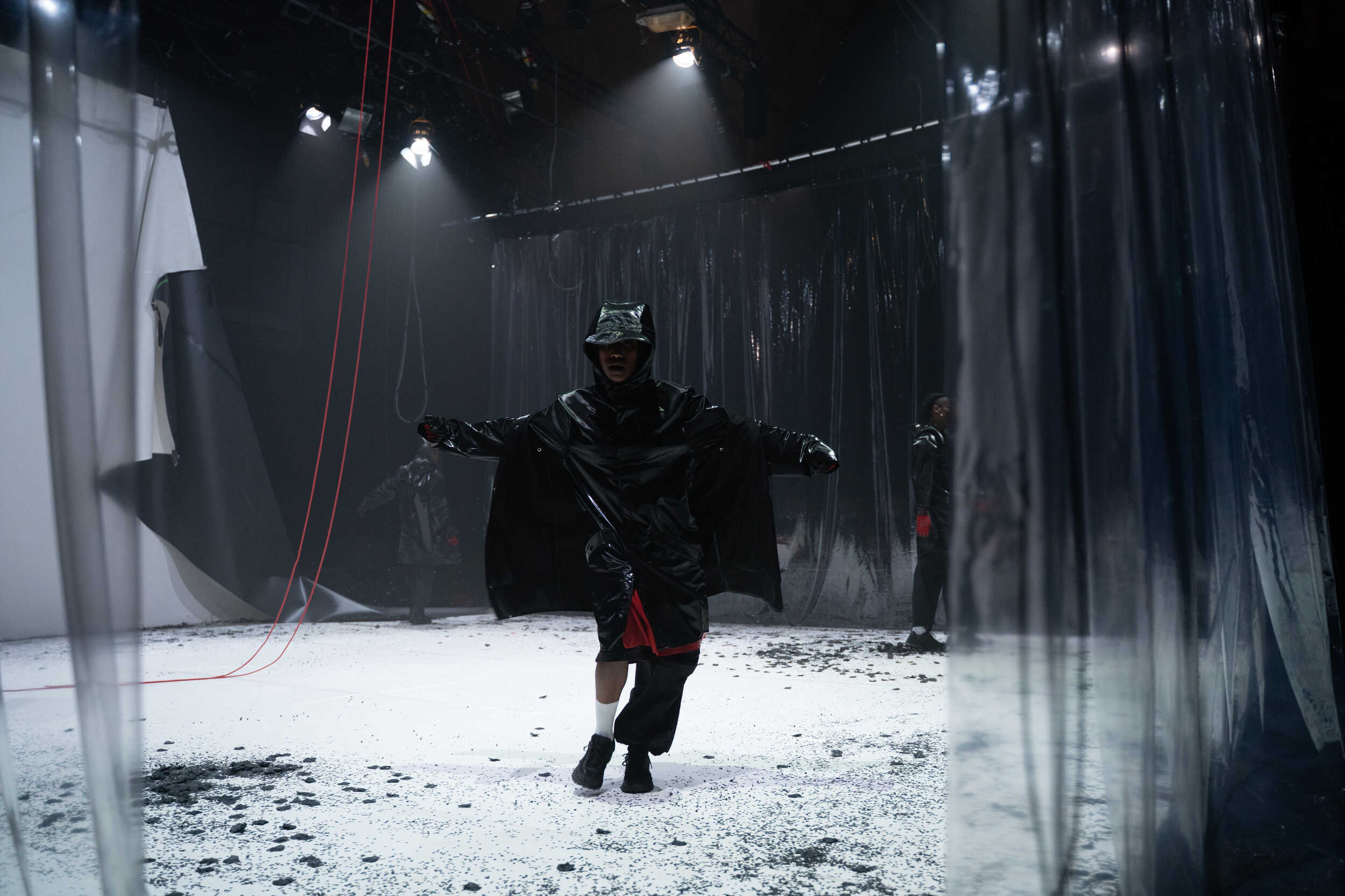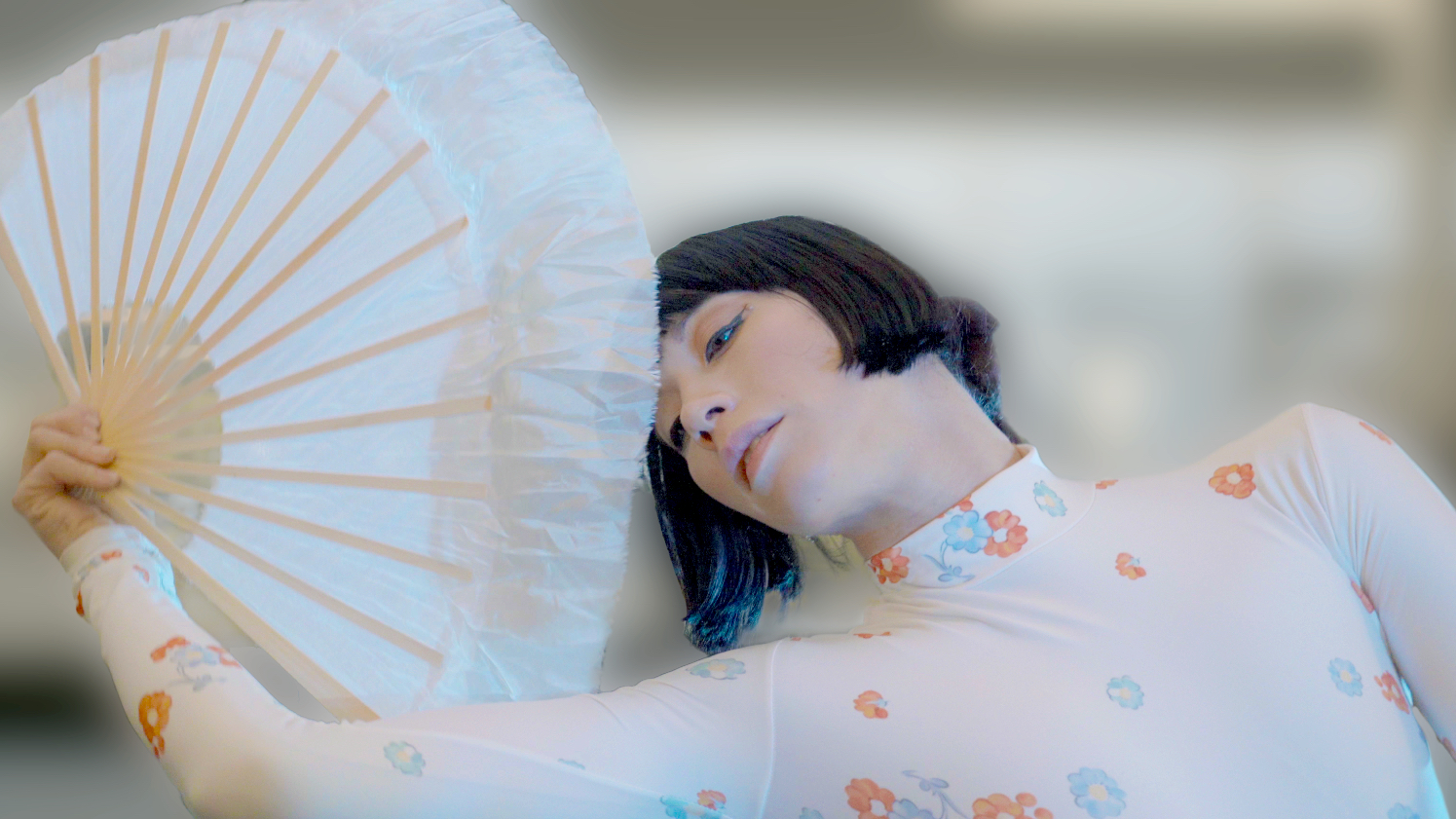Company Wang Ramirez (led by dance and romantic partners Honji Wang and Sébastien Ramirez) is usually introduced by listing the diverse influences on their work—hip-hop, ballet, martial arts, tanztheater—and the cultural influences on their background—she’s Korean German, he’s Catalan French. Based in Berlin, they create work that is smooth, otherworldly, explosive. They’ve produced nine works as a company and collaborated with dance stars like Sara Mearns, Akram Khan, and Rocío Molina, and choreographed part of Madonna’s Rebel Heart tour. In Philly they just completed a tour of their first work, a duet called Monchichi, presented by NextMove Dance at the Prince Music Theater. Now they will tour two other repertory works in Europe before heading to China to choreograph a new piece with dancers there.
The two are impulsive, generous, fluid, and funny, gently teasing each other throughout the interview. One of the first things they do in our conversation is push back against the academic distinctions I, and others, try to make about their background and influences.
Julius Ferraro: I’m interested in what you’ve discovered about hip-hop by bringing other styles, like theater, into it.
Honji Wang: The style of work on stage is something that we found just by doing. We don’t come from an academic background. We didn’t study theater, dance, drama, singing. What we’re doing, now they call it theater, but there was nothing conscious where we said “we want to do theater now.” For example, we’re using voices and interviews that we recorded, conversations with the dancers, as a dialogue or monologue on stage, not because we wanted to do theater but because we thought using voices would be an interesting way of expressing something that dance couldn’t do, of showing character and sensibility in a certain way. Dance can say so much more than words, but words say things that dance cannot say as well.
JF: I’ve read that you consider Monchichi, your first work, to be about the beginning of your relationship, and in EVERYNESS you’re looking at your relationship again a decade later. So what’s it like going back to the beginning?
Sébastien Ramirez: When we created Monchichi we didn’t have any clue about the contemporary art world. We were in our own bubble, making. And so this performance has grown through the years. We are conscious about the naiveté we had at the beginning.
HW: What is very interesting in the United States is that with the name and the label of the word hip-hop, people have certain expectations. Hip-hop here is seen more as urban culture, a culture that comes from the streets that we see a lot on TV now, which is rappers and MTV and, I don’t know, America’s Best Dance Crew.
JF: And you think that perspective is different in Europe?
HW: Yes, it is, especially in France. It’s so much more established in the field of theater and dance. It doesn’t belong just to the streets or TV. For a long time it has belonged to theater stages and contemporary stages.
SR: And hip-hop dancers are recognized as artists.
HW: They’re recognized highly as artists. They’re not, anymore, “street artists”—
SR: —showing off club skills, it’s not about this.
JF: Is that similar for breakdance?
SR: Yea, just hip-hop dance in general.
JF: That’s not something we get on stage much here. It happens—
SR: On the street. This is where the difference is between Europe and America. In America it’s astonishing to us when people say, “Wow, this is actually hip-hop? This is breakdance? We didn’t expect a performance like this.”
JF: In an interview I heard you say your work is “very brutal and very soft,” and that the world is brutal and soft.
HW: If you look at the background of us and our team, we are living clashes. The way we grew up, the way we established our company, the way we defend our work, the way we try to grow as artists, the way we try to build the future: it’s a constant clash of cultures, of social clashes. It’s not just visible borders between countries. It’s an invisible border of social classes from low to high. Come from hip-hop, even in Europe we still felt like we had to defend ourselves to perform on institutional stages like in opera houses or whatever, which were immediately accessible to classical artists. And then there’s also the clashes of our parents, which wasn’t about making their dreams come true, it was the opportunity to make a living and survive. We always feel like we are constantly living in a clash. What we come from, where we are today, what we are trying to be.
JF: What is brutal about your work?
SR: It’s an aesthetic of movement. It’s also an interesting clash between a man and a woman. She can be brutal to me and I can be brutal to her.
HW: For example, when you grab, very quickly, at very high speed, the face. It’s a strong picture, it’s brutal, when I leap onto his neck, or when when he throws me to the floor by grabbing my face, it’s effective. We didn’t do it by wanting to shock with something, it was more about a research of physicality that we like that came by hazard. We like opposites. We like fast slow, slow fast, and break. People see it as brutal but lovely at the same time. We like the sensation of having clashes and then changing directions.
JF: How do you develop character?
HW: With Monchichi, actually we didn’t ask too much who we wanted to be. We didn’t talk about it. Who are you, who am I? I’m me; you are you. We just did it. It was our first piece so it was really blind-eyed. We didn’t know what the fuck, how the fuck, what we’re doing, we’re just doing it by feeling. Okay, I have to start with an opening, and then I have to end up with something! And you do it. And this was our first dance piece.
SR: Actually this is why maybe it’s such a strong piece. If you look at it in our repertoire, Monchichi is maybe much stronger than EVERYNESS or our other pieces. Because in EVERYNESS, quite simply, we started by thinking about who is going to play each role, which actually made us more fragile and weak. You have to let a person grow themselves, and be themselves, and catch what is very strong in that person. The result is much more interesting when you let it happen.
J: As you get more successful, how do you deal with increasing deadlines and demands?
SR: A deadline gives me anxiety. When you commit to do something, then it’s not fun anymore. For me, when I see that my calendar is full for the next two or three years, I don’t like it. You need the time to be bored, and to have a critical mind. To have a critical mind, you have to be able to think critically, to look at things and analyze them, and all of this comes with time. When you’re rushing because there are just so many things to do, you don’t find that time anymore. For her maybe it’s different.
HW: In the end it’s a balance. We balance each other a lot. When he feels stressed, I’m there to say, we’ll be fine, we’ll make it. And it happens the other way around too.
SR: It’s the nature of a couple. When one is down the other is up. When the other is down, the other is up.
Read Amelia Rose Estrada’s review of Monchichi here.
Monchichi, Company Wang Ramirez, Prince Music Theater, March 15-18, http://princetheater.org/next-move.






